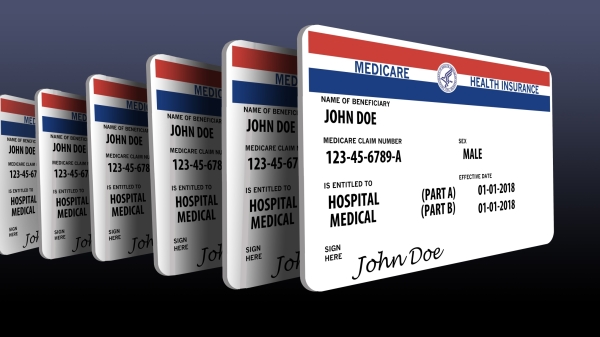U.S. Senator Richard Shelby, R-Alabama, announced that members of the Alabama congressional delegation have sent a letter to Administrator Seema Verma of the Centers for Medicare and Medicaid Services (CMS) to encourage the agency to use the proposed rule for the Inpatient Prospective Payment System (IPPS) in fiscal year 2020 to provide relief from the increasing disproportion of reimbursement created by the Medicare wage index.
“We appreciate the Centers for Medicare and Medicaid Services (CMS) including a request for public comments on wage index disparities in last year’s Inpatient Prospective Payment System (IPPS) rulemaking process,” the delegation wrote. “As CMS finalizes the proposed rule for the IPPS in fiscal year 2020, we encourage you to provide relief from the increasing disproportion of reimbursement created by the Medicare wage index, a fundamentally flawed and administratively burdensome system. The wage index has created a unique situation that is negatively impacting the health care system in Alabama. Most recently, Georgiana Medical Center in Georgiana, Alabama, announced its plans to close, making it the thirteenth hospital in our state to close since 2011. If left unaddressed, many more hospitals in Alabama could follow suit, and the wage index will continue to be a major contributor.”
Rural hospitals closing in Alabama has become a growing problem as the rural population is declining and it is increasingly difficult for the rural hospitals to recruit doctors, particularly specialists like obstetricians, orthopedists, and heart specialists.
The delegation wrote. “In November of 2018, the Office of Inspector General for the Department of Health and Human Services issued a report that outlined concerns with the current wage index system including incorrect or incomplete wage data, insufficient reviews of information, and the inaccuracy of rural floor and hold-harmless provisions. With the lowest wage index in the country, both our urban and rural hospitals have suffered from the estimated $140.5 million in overpayments that were illustrated in the report.”
“Additionally, the fiscal year 2019 Labor, Health and Human Services Appropriations report included language encouraging CMS to identify ways to reduce regional disparities in the Medicare wage index and implement those solutions,” the delegation continued. “We continue to support this position and CMS’ efforts to recognize the unjustified differences in payments to hospitals in different parts of the country. It is our hope that CMS will use the current IPPS rulemaking process to reduce the significant vulnerabilities Alabama’s hospitals are facing.”
The congressional delegation letter was signed by Senator Shelby along with U.S. Senator Doug Jones (D-Alabama), U.S. Representatives Robert Aderholt (R-Haleyville), Mike Rogers, (R-Saks), Mo Brooks (R-Huntsville), Martha Roby (R-Montgomery), Terri Sewell (D-Selma), Bradley Byrne (R-Montrose), and Gary Palmer (R-Hoover).
According to the American Hospital Association, one of the significant adjustments in the IPPS is an adjustment for market conditions, or the area wage index (AWI). The AWI is intended to measure differences in hospital wage rates among labor markets; it compares the average hourly wage for hospital workers in each metropolitan statistical area (MSA) or statewide rural area to the nationwide average. A hospital may request reclassification to an adjacent market area for its wage index (and capital payment geographic adjustment factor), based on certain wage and distance criteria. In 2007, CMS implemented an “occupational mix” adjustment to the AWI for nursing-related personnel to ensure that wage index values do not reflect the effects of differences in the mix of workers (for example, a greater share of RNs and smaller share of nurse aides in some areas). The AWI is revised each year based on wage data reported by inpatient PPS hospitals.
In theory, labor is cheaper in Alabama so Alabama hospitals do not get the same Medicare reimbursement as an MSA in another state with a more robust labor market. In practice, Alabama hospitals get paid less by Medicare for the same services than other hospitals because of the Medicare Wage Index.























































